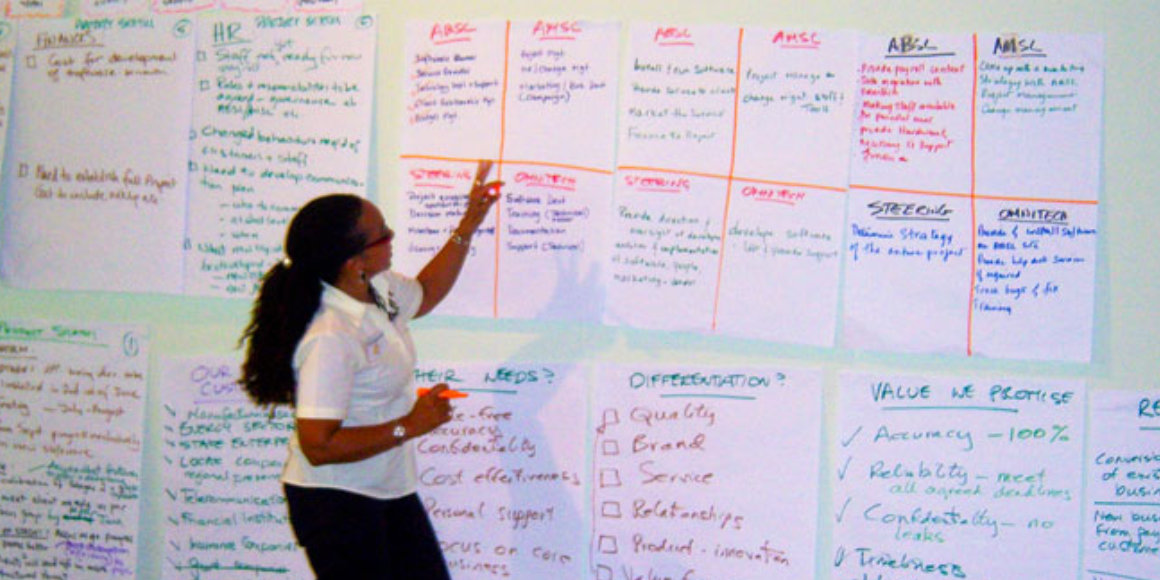“We are having a 2-day retreat next week, at (fancy-schmancy resort hotel). It’s for about 24 people. We need a facilitator, but we don’t have much of a budget. Are you available”?
In my 4 decades of facilitating retreats, I have heard this quite a few times. My simple answer is: “So sorry. I am not available”. Because good facilitators are rarely available at such short notice. PLUS, there’s much more that goes into a successful retreat than people realise. The facilitator’s ultimate aim is to make everything flow – in my case, with ease, grace and joy. It takes a lot of preparation to turn up and make everything look easy.
Retreats have become an essential part of leadership efforts to develop strategic plans, enhance team collaboration, foster innovation, and develop effective leadership skills. They unique opportunities for teams to step away from the daily grind of the office, and create space for strategic thinking, problem-solving, and team bonding. While the idea of a retreat may seem simple, the role of a skilled facilitator cannot be understated.
Here are 6 key reasons to have a great facilitator at your next retreat:
1. Objective Perspective and Guidance:
One of the primary advantages of having a skilled facilitator for your retreat is their objective perspective. The facilitator is an “outsider looking in” and sees things with fresh eyes, without the blinders of office politics, interpersonal conflicts and the grind of getting day to day tasks done. The facilitator is impartial, and skilled at focusing the team on their desired objectives. They will help set the agenda, keep discussions on track, and ensure that all voices are heard. This objectivity allows participants to express their opinions freely and ensures that the retreat stays focused and productive.
2. Creating an Environment for Effective Communication:
Effective communication is crucial for any team to function optimally. A skilled facilitator will create a safe and supportive environment where team members feel encouraged to express their ideas, concerns, and challenges openly. They will have their own toolbox of tried and tested tools and techniques that foster communication. And they will be very skilled at asking probing questions and waiting patiently and listening deeply for the answer.
3. Conflict Resolution:
Sometimes, retreats can bring underlying conflicts to the surface. Actually, this is the perfect place for such issues to be vented. A skilled facilitator will play a vital role in surfacing and resolving these conflicts. They will have honed their skill of identifying “elephants in the room” and will take great care to help the participants work through issues, find common ground, and move forward with a shared vision and plan.
4. Maximizing Participation and Engagement:
Key to this is an understanding of how to engage all participants and ensure their active involvement throughout the retreat. By creating a structured and inclusive environment, and selecting appropriate tools from their toolbox, a facilitator will ensure that everyone’s perspectives and contributions are valued and acknowledged.
5. Managing the Energy in the Room:
A skilled facilitator knows the importance of managing the energy in the room. With objectives, timelines, and deliverables to consider, it’s easy for a retreat to go off course and for participants to check out. A facilitator takes on the responsibility of keeping the retreat on track and focused. They help manage time efficiently, ensure discussion points are covered, and maintain a balance between generating ideas and reaching actionable decisions. Most importantly, they keep participants energised so that they can stay awake, focus and have fun – because that’s when we do our best work.
6. Freedom:
If you don’t have a facilitator, you may find yourself bogged down in the minutiae of the retreat – managing discussions, resolving issues, keeping the participants involved. Having a skilled facilitator gives you the freedom to participate fully in discussions, to listen deeply to the other participants, and to observe team dynamics. Being a participant like everyone else can be a most liberating experience for you, and a great advantage of having a facilitator.
The role of a skilled facilitator is invaluable. It is an investment in the success of your retreat that will yield great returns. It will ensure that your retreats are purposeful, productive, and yield lasting benefits for your organization.
So, the next time you are thinking about a retreat, consider the value a skilled facilitator can bring to the table. Make sure to engage them early in your retreat planning. And include them in your budget! The facilitator should never be an afterthought.





